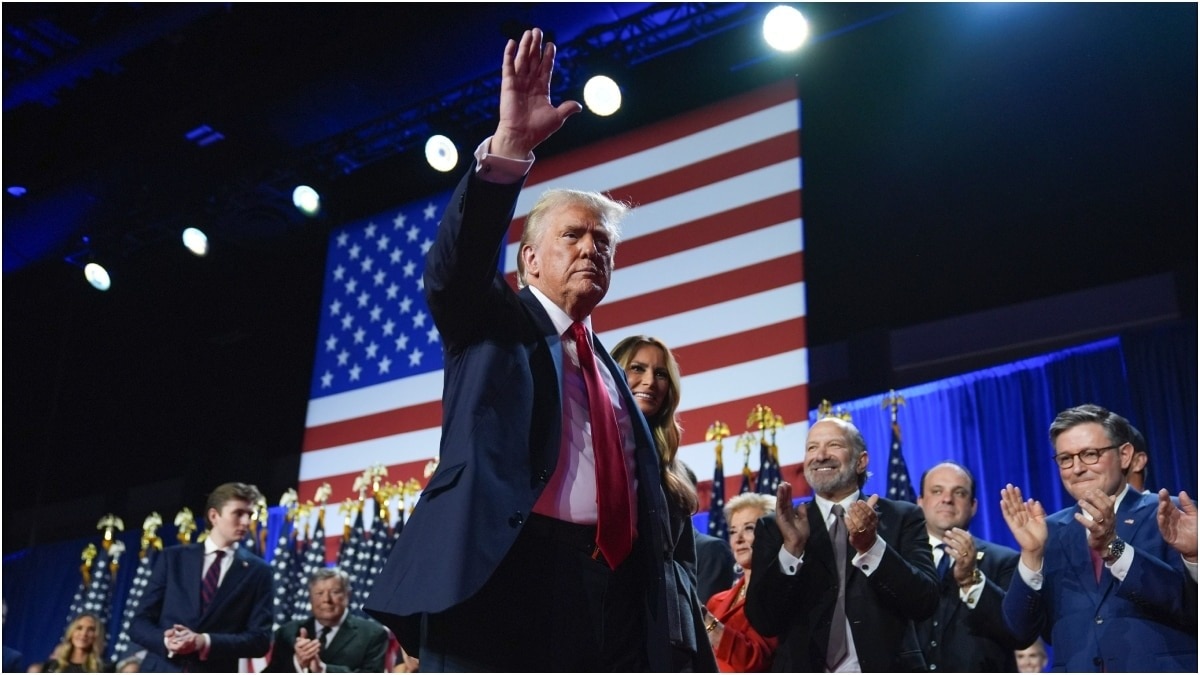2024-11-08 15:01:06
Donald Trump’s return to the White House raises important questions about how his administration would approach policies in West Asia. The stakes are high, with issues ranging from Israeli-Palestinian tensions to Gulf nations’ aspirations for autonomy, influence, and strategic leverage in an increasingly multipolar world.
Examining Trump’s historical stances, domestic lobbies, and the current regional dynamics suggests that his approach to West Asia will likely involve a blend of transactionalism, strategic detachment, and selective intervention, influenced by the major interest groups backing his administration.
Israel and the Palestinian Territories
A fundamental aspect of Trump’s West Asia policy will be his unwavering support for Israel, a stance he has emphasized in the past and one that likely aligns with influential pro-Israel lobbies. Trump has stated his desire to “end the killing” in Gaza, yet his strong alliance with Israel could impede genuine mediation, especially given the far-right shift in Israel’s political landscape. Israel’s government, under Prime Minister Benjamin Netanyahu and buoyed by Trump’s prior policies, has expressed little interest in the kind of two-state solution that would involve substantial concessions. Far-right factions within Israel, such as Itamar Ben Gvir’s settler movement, view Trump as a potential enabler who might look the other way if Israel intensifies its policies in Gaza and the West Bank.
Trump’s stance on Israel’s conflicts with Gaza and Lebanon, where the violence has escalated following Hamas and Hezbollah attacks, will be crucial. Despite his pledge to avoid foreign wars, Trump’s reflexive pro-Israel stance might lead him to indirectly support Israel’s hardline policies, even if they contradict his broader anti-war agenda.
Iran and the “Axis of Resistance”
Trump’s position on Iran has historically been hostile, characterised by a “maximum pressure” campaign of sanctions and diplomatic isolation aimed at weakening Iran’s regional influence. His administration’s revival would likely pursue similar policies, prioritising sanctions, particularly on Iran’s oil exports, to undermine the Iranian economy without direct military confrontation. This approach aims to curb the “Axis of Resistance,” a coalition of Iran-aligned groups, including Hamas in Gaza and Hezbollah in Lebanon.
While Trump is unlikely to pursue open war with Iran, he may encourage punitive measures against Iranian allies in Lebanon and Syria by empowering Israel to act with fewer constraints. Unlike Biden’s administration, which has sought to balance sanction enforcement with broader diplomatic engagements, a Trump presidency could adopt a stricter, sanctions-focused policy without concern for the implications on regional stability. However, this strategy could provoke further Iranian responses, pushing the region toward a perpetual cycle of provocation and retaliation.
The Gulf States’ rising autonomy and strategic leverage
In contrast to 2016, Gulf countries like Saudi Arabia, the UAE, and Qatar are now better positioned to assert their strategic autonomy and influence American policy. Trump’s transactional approach is well-received in the UAE, where leaders see a potential return of Trump as an opportunity to pursue policies aligned with their own national interests, particularly in Libya, Sudan, and Yemen, without American intervention. The UAE, with its role in the Abraham Accords, hopes Trump will continue supporting its objectives in West Asia while reducing values-based conditionalities that were more pronounced under Biden. Abu Dhabi views Trump’s pragmatism as an opening to pursue policies that prioritise Emirati interests, including a hawkish stance toward Iran’s influence, although it seeks to avoid direct confrontation.
Qatar, with its fortified relationship with the U.S. as a major non-NATO ally, also welcomes a return to Trump’s transactional diplomacy. However, Qatar may face challenges under a Trump administration more closely aligned with pro-Israel voices in Washington. Given Doha’s mediator role between Israel and Hamas, Trump’s pro-Israel stance could limit Qatar’s maneuvering space, compelling it to tread carefully to maintain its standing as a broker for peace. Nevertheless, Qatar’s pragmatic diplomacy and hosting of U.S. military bases keep it integral to American interests, likely safeguarding its influence.
Saudi Arabia’s strategic ambitions and reservations
In 2017, Donald Trump made his first overseas visit as President to Saudi Arabia. However, Saudi Arabia views Trump’s return with cautious optimism, hoping for a revival of American hegemony in the region and a re-alignment of U.S. policy with its own national goals. Trump’s transactionalism aligns with Saudi interests, allowing it greater leeway to pursue its policies in Yemen, Syria, and Lebanon, while tempering Iran’s influence through U.S. support. Although the Saudis would likely welcome renewed American commitment in West Asia, they remain wary of Trump’s inconsistency, particularly recalling his failure to respond to the 2019 Iranian attacks on Saudi oil facilities.
What’s next for West Asia?
Donald Trump’s approach to West Asia is likely to pivot around transactional relationships, where strategic alignment with regional allies takes precedence over a cohesive regional vision. Gulf nations, especially the UAE and Saudi Arabia, will seize on Trump’s deal-making style, hoping it grants them latitude to advance their interests—whether countering Iranian influence or expanding regional clout—without restrictive conditions on governance or human rights. This dynamic also extends to Israel, where Trump’s backing is expected to bolster its stance on Palestine and security policy, potentially exacerbating tensions in Gaza and Lebanon.
However, this high-stakes, bidder-driven approach carries risks: it could foster an environment where allies pursue competing agendas unchecked by a stabilising U.S. presence, heightening the risk of unintended escalation. Trump’s selective involvement may keep the U.S. out of direct conflicts but risks encouraging a volatile power balance, leaving the future of regional stability dependent on Gulf states’ and Israel’s ability to manage rivalries and alliances independently.
Trump 2024 Victory, Trump Middle East Policy, Trump Israel Palestine, Trump Gulf Relations, Trump Iran Sanctions, Trump West Asia Strategy, Trump Foreign Policy, U.S. Election 2024 Trump, Trump Diplomacy Gulf, Trump and Israel, Trump 2024 US Election, Trump Middle East Policy 2024, Trump Israel Palestine 2024, Trump Iran US Elections, Trump Gulf Relations 2024, Trump West Asia US Election, Trump Foreign Policy 2024, US Elections 2024 Trump, Trump Diplomacy Middle East 2024, Trump Israel Policy US Election
Source link
13 total views , 1 views today
